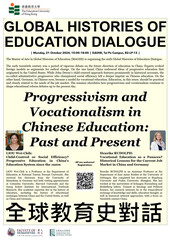Seminar Series - “The People’s Currency”: Money, Power, and Value in Nineteenth-Century America"
- 2017年02月10日 | 3:30 pm - 5:00 pm
- A-4/F-02
- 文学及文化学系
- 讲座
- Dr. David Schley
- 文学及文化学系
In 1839, in the midst of an international financial collapse, the citizens of Baltimore invented a new type of money. Issued by the upstart Baltimore & Ohio Railroad and called “railroad notes,” the new currency was backed by municipal bonds rather than specie. With the medium of exchange now linked to the city’s credit and the city’s credit tied to the value of its taxable property, the new currency effectively monetized urban space itself. When in 1841 the railroad notes began depreciating rapidly, working-class citizens staged mass rallies to bolster what they called “the people’s currency” against the machinations of bankers attempting to orchestrate its decline.
The short-lived railroad note represented an attempt to rethink the meaning of value and the nature of the economy. By rejecting the idea that value inhered in precious metals and by taking their convictions to the street, the railroad note’s supporters argued that the economy was a social construct subject to political control rather than an impersonal phenomenon governed by quasi-natural laws. Attending to the rise and fall of the railroad note allows us to reconstruct a forgotten strand of radical economic thought that was nonetheless not so utopian as it first appears.
Speaker: Dr David Schley
David Schley is an Assistant Professor of History at Hong Kong Baptist University.






